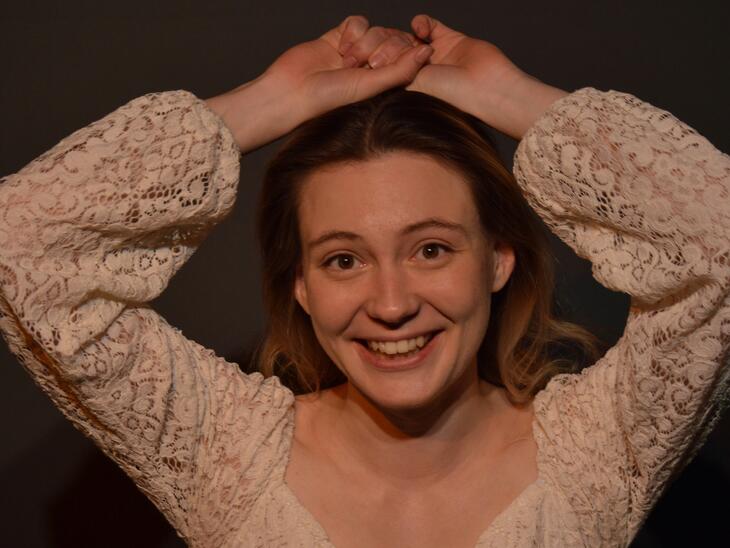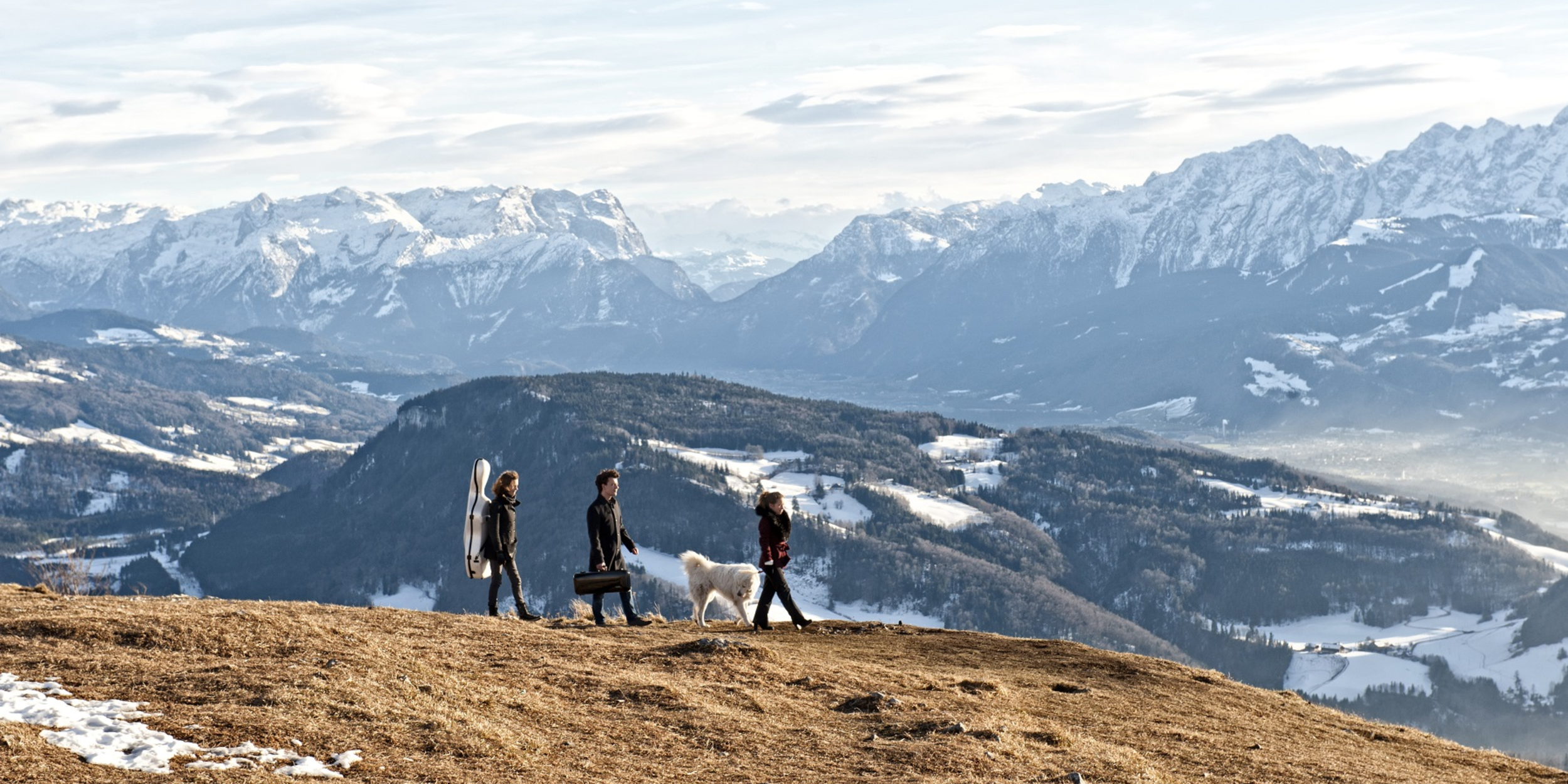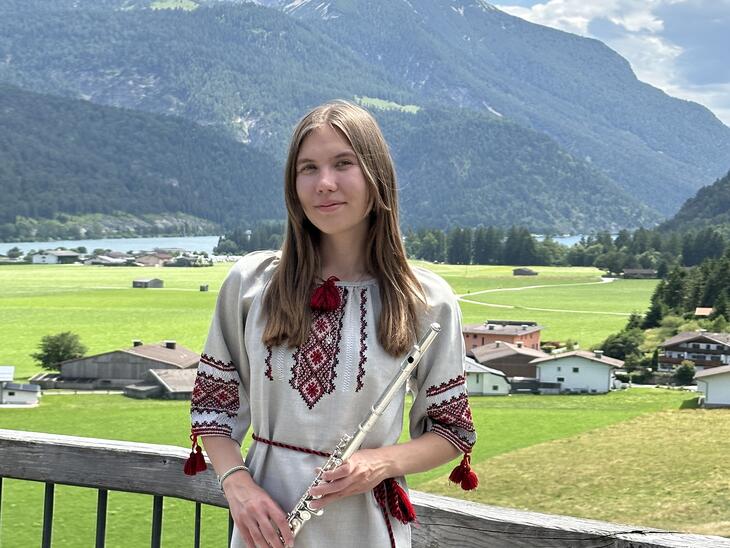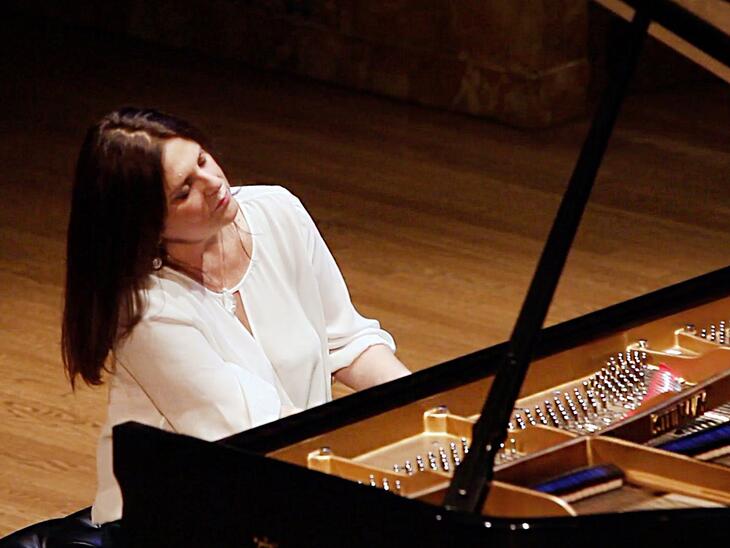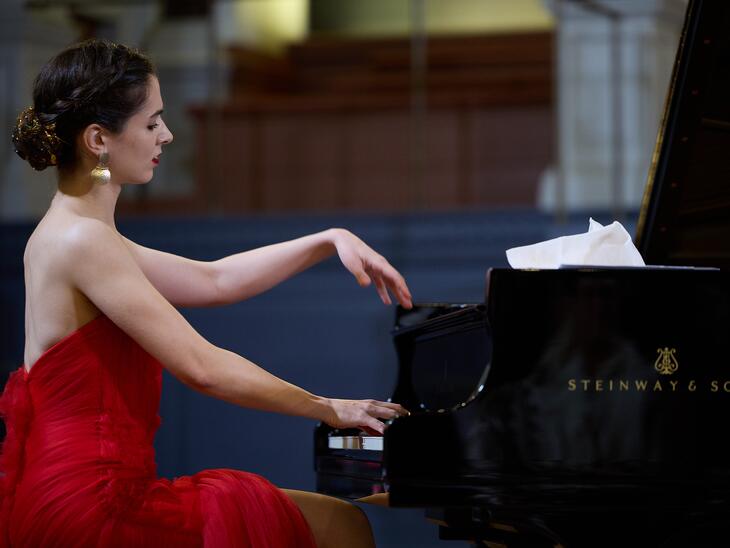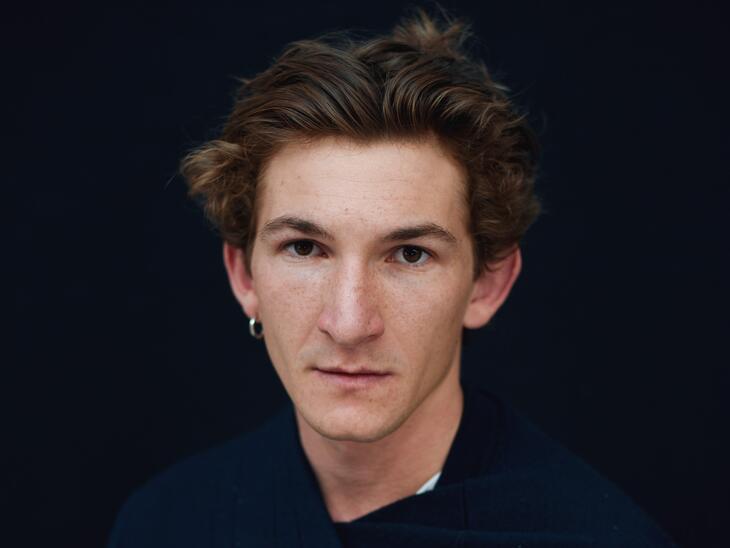Congratulations on the Kersjesprijs 2020! What does this prize mean to you?
The prize came at the perfect time, of course. We didn't earn that much this year through "Corona" and now we can use the 50,000 euros for different projects within three years. They are not fees that we can pay off, but we are planning, for example, a CD recording, maybe videos and new photos. It's a way to relax a bit and realise things that we wouldn't have been able to do otherwise. The financial pressure is gone and at the moment we have more time.
CD productions are relatively cost-intensive, aren't they?
Yes! It's probably not so well known that even famous musicians have to pay for CD productions. You don't earn much with CD sales, also because of the increasing streaming. It's more promotion than income. Of course it's nice to do something like that and you learn an incredible amount through the process. With our last CD, which we did with ODRA, an American label, we were able to edit everything ourselves with the sound engineer. We recorded for five days and then we were in the studio for another three or four days and worked on the tracks together with the sound engineer. That was great.
How have you been in the last few months, which have been particularly difficult for culture? The next performances are planned for January, right?
We had some gigs in the summer, it was better then. Now some things have been cancelled at short notice, which is of course difficult. You always have to be prepared and then it doesn't work. In the Netherlands it's a bit more relaxed, up to thirty people are still allowed to go to the concert there. It works well with chamber music, but a symphony orchestra has problems. The January concerts are planned, but of course we're waiting to see what happens next. A lot is still unclear. Concerts in Switzerland are planned for the end of February, but we'll see how that works with the ski season, which is just about to start again. We are definitely prepared and looking forward to it. However, we are realistic and know that this can also be postponed or cancelled again. The livestreams have been exciting, so it's not just a snapshot when it's online forever. A lot of new things develop and you also learn a lot from it. On the other hand, you need time for big projects and we are using that now. We have now received the financial help with the prize and CD recordings can now be made well.
What was the path like from the founding of the ensemble to the Kersjes Prize?
We founded the trio in Salzburg while studying at the Mozarteum University. Vera Kooper and I had been there for a while and then Gerard Spronk joined. I think in his second week we started rehearsing in the Frohnburg, that was a very intense time. Now, seven years later, we live in different cities but it works well. Wolfgang Redik helped us a lot in the beginning, we were also in Moscow for an exchange programme. By chance, we had rehearsed exactly the right programme for a competition at the right time, which we then won. That was the first common goal. We then took part in even more competitions, because we didn't have so many concerts to show for it, and we won several of them. This in turn led to new concerts. We were really lucky. The competitions helped enormously. On the one hand, because you won concerts, on the other hand, because you were played on the radio and then received another invitation. I then moved to Paris, Gerard went to Zurich after graduating and we spent one or two years in different countries. But we found each other again in Basel and studied chamber music once more. Among others, with Rainer Schmidt, whom we already knew from the Mozarteum, and Anton Kernjak. That was the perfect combination for us. We did many tours, for example in Asia and the USA, and really tried to play as much as possible, even during our studies. Today we have an agency in the Netherlands, which is of course very helpful.
How did you get the gigs?
We actively wrote to many concert promoters, and some things just happened. But it is a lot of office work. We tried to plan and combine concerts well, after a concert in China we played in South Korea. It's also nicer for us to have a few concerts in a row instead of travelling somewhere for just one gig. During a concert tour, a development takes place and it's just nice to be together longer and play together more often. One often develops out of the other. We were also lucky, of course. It's also important to talk to colleagues about how to get concerts. You don't learn that at university. I am the youngest of the trio and was lucky that Vera already knew her way around. You also have to learn from others and be active. You can't wait and see. We also try to pass this on to younger colleagues. Winning prizes, a good CV, good photos and recordings help enormously. We were also on TV once and subsequently had a professional recording on Youtube, which was also very helpful. There are always tours that don't go so smoothly. In China we once had the situation that the concerts of the first week were cancelled at short notice. There was no contact person and we were stuck in a hotel a few kilometres from Shanghai. I was really happy that there were three of us. We also complement each other's skills very well. The path is not easy but very beautiful!
